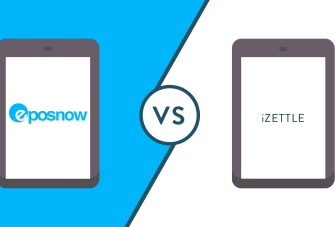What is a POS report?
In today’s competitive business environment, you need to use every tool at your disposal to gain a competitive edge. Likewise, with the increased role of e-commerce and online food ordering, consolidating data across platforms is crucial. Without total oversight of your business, you can be bleeding money or underperforming and never catch it.
How can you access and analyze this data? It’s simple - point of sale (POS) reporting.
What are point of sale reports? What do they do?
In short, POS reports are created using data stored in the system. The POS system automatically records all interactions and stores data for quick access. With this data, a user can analyze anything from sales and returns to payroll and taxes.
Under everyday circumstances, most people only use simple POS reports that show daily sales volume or inventory levels. However, reporting features can be much more in-depth than this, and many business owners are not utilising their POS system to its full potential.
Types of reports you can generate
Maximise your business’s profit potential, customer service, and performance with these reports.
Sales
For most businesses, it’s all about the bottom line. Analyzing sales data can show you inefficiencies and ways to grow.
If you are not generating enough revenue, you cannot stay afloat for long. POS reports let you take a deep dive into your numbers to get a clear sales picture.
Here are a few sales-related POS reports you can create:
- Total sales volume: Track how many items were sold within a day, week, or set period.
- Gross profits: See how much your business brings in after accounting for production costs.
- Best/Worst selling days: Find out which days are most profitable so you can improve staffing and marketing.
- Best/Worst selling products: See which items are most in-demand so you can cater to consumer trends.
Payment
Do you pay too much in credit card processing fees? Are you on multiple food delivery apps but don’t know which actually increase your bottom line?
A modern POS system tracks all transaction data, including payment methods, you can see how customers like to pay. With this data, you can make smart business decisions to ensure you cater to demand without bringing on extra costs.
Some common POS reports for payment include:
- Card payments: See how many customers use debit and credit cards, and identify which merchants are most popular.
- Cash payments: In 2020, many businesses ran out of change and could not take cash payments. Track cash transactions to see how many coins and bills to keep on hand.
- Online payments: If you have an online store or ordering system, integrated all transactions with your POS. You can then analyze and track performance in one place.
- Third-party applications: If you sell via platforms like UberEats or Shopify, you can track total payment volume to see if these services are worth the price.
- Refunds: Analyze refund volume to find ways to reduce return costs.
- Chargebacks: Track all chargebacks to identify possible fraud or issues of poor performance.
Staffing
How do you manage your work schedule? Do you ever overstaff on slow days?
POS reports help you intuitively create staff schedules and manage personnel. Since all staff must log in to the terminal to do business, you can collect all their activity and see work hours.
You can use staff reports for:
- Scheduling: Monitor work hours to ensure they are distributed fairly across employees.
- Attendance: Track what times employees clock in and out to spot tardiness and other issues.
- Payroll: Since all hours are logged through the POS system, you can export timesheets directly to your accounting software for faster payroll.
Employee performance
Do you offer commission or other incentives? Do you have awards for Employee of the Month or Top Selling Associate?
With in-depth POS reports, you can track each worker’s output to assess their performance.
Common issues you can address include:
- Employee sales performance: See which workers get the most sales and identify those who need coaching.
- Average tip amount: Review employee tips to get a rough estimate of how customers view them and ensure adequate compensation.
Inventory management
Do you have an accurate count of what’s on shelves and what’s in your storeroom? Do you know how many pours are left in your kegs and bottles?
Whether you operate a retail or hospitality business, your POS system helps you keep an accurate count of inventory. All transactions automatically count against your last stock take, so you know exactly how much remains.
POS reports can help manage inventory issues like:
- Expected stock vs. Actual stock: See your expected stock levels to quickly identify theft or shrinkage issues during stock takes.
- Dead stock: Identify non-selling items to prevent over-ordering and determine what needs to be liquidated.
- Out of stock: Identify popular items and set recurring orders to ensure customers get what they need without delay.
Customer
Your business is nothing without its customers. Failing to satisfy their expectations can lead to lower profits and poor reviews. Since repeat customers spend more than first-time shoppers, you can use POS reports to meet their demands and encourage repeat business.
Here’s how your POS can improve customer service and keep us with sales trends:
- Identify repeat buyers: Capture customer information and enroll them in your loyalty program to see how often they visit.
- Track shopping habits: See what returning customers buy to create a targetted marketing offers.
- Follow up on lost sales: Capture online shopper data before they finalise their purchase. Send abandoned cart emails to boost conversions.
Location
Does your store have multiple locations? Do you oversee restaurant franchises?
Tracking performance across locations can be difficult. From simple gaps in reporting to employees skewing data, it is hard to get an accurate picture from a distance.
With a cloud POS, all devices are connected and data is sent to a central location. Owners and management can get real-time insight into any location from any device. Leaders can see every report mentioned, and you can set permissions to prevent one location from seeing another location's reports.
Get powerful POS reports with Epos Now
Epos Now point of sale systems empower business owners with a range of reporting tools. While our devices can generate detailed insights, they also integrate with a range of platforms to increase overall efficiency.
With our POS systems, you can:
- Synchronise your e-commerce site: Manage your online store directly from your Epos Now terminal and see all data in one place.
- Export to reports to accounting software: Generate POS reports and send them directly to QuickBooks, Xero, and other programs.
- Create a customer loyalty program: Enroll shoppers in a unique program and offer rewards/incentives to encourage continued business.
- Store all data securely on the cloud: With online storage, you get 24/7 remote access to your system and add a layer of protection.




